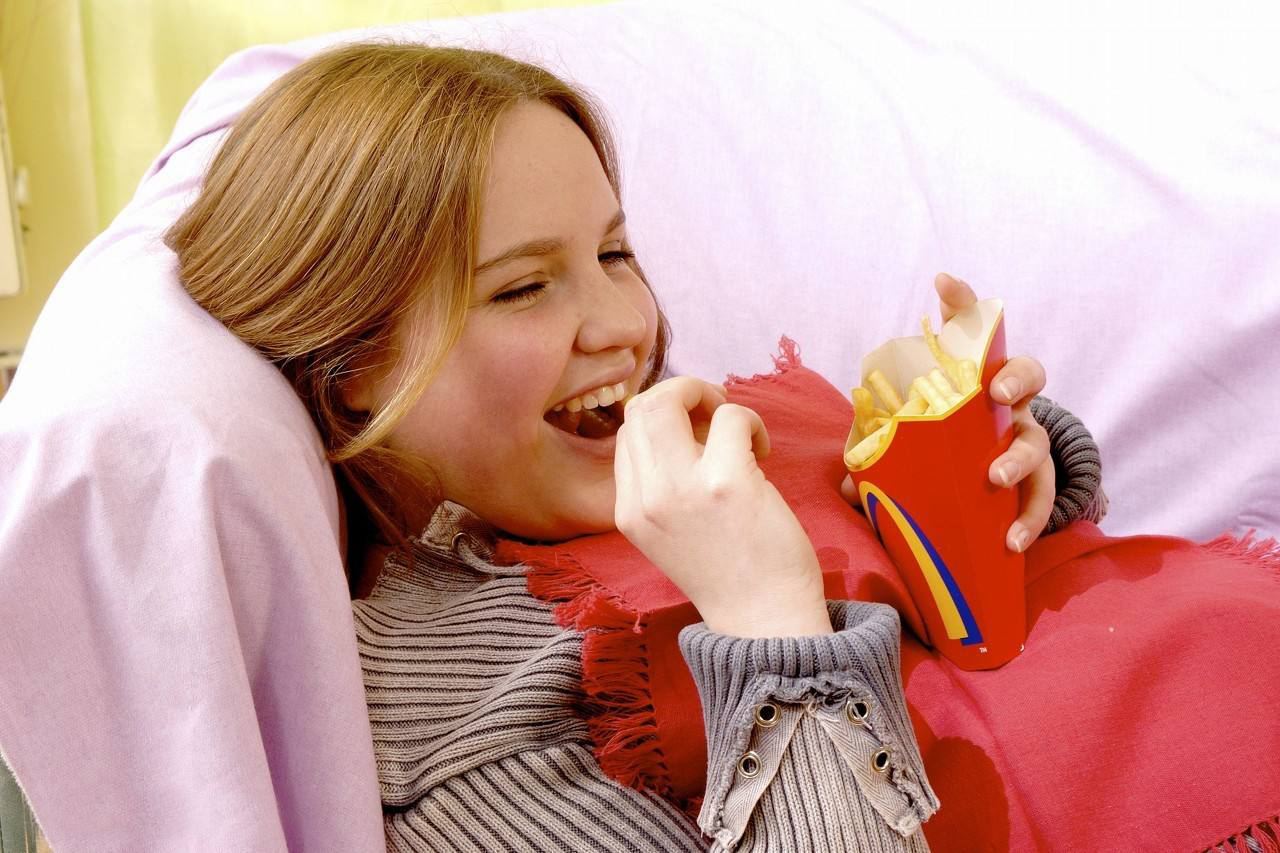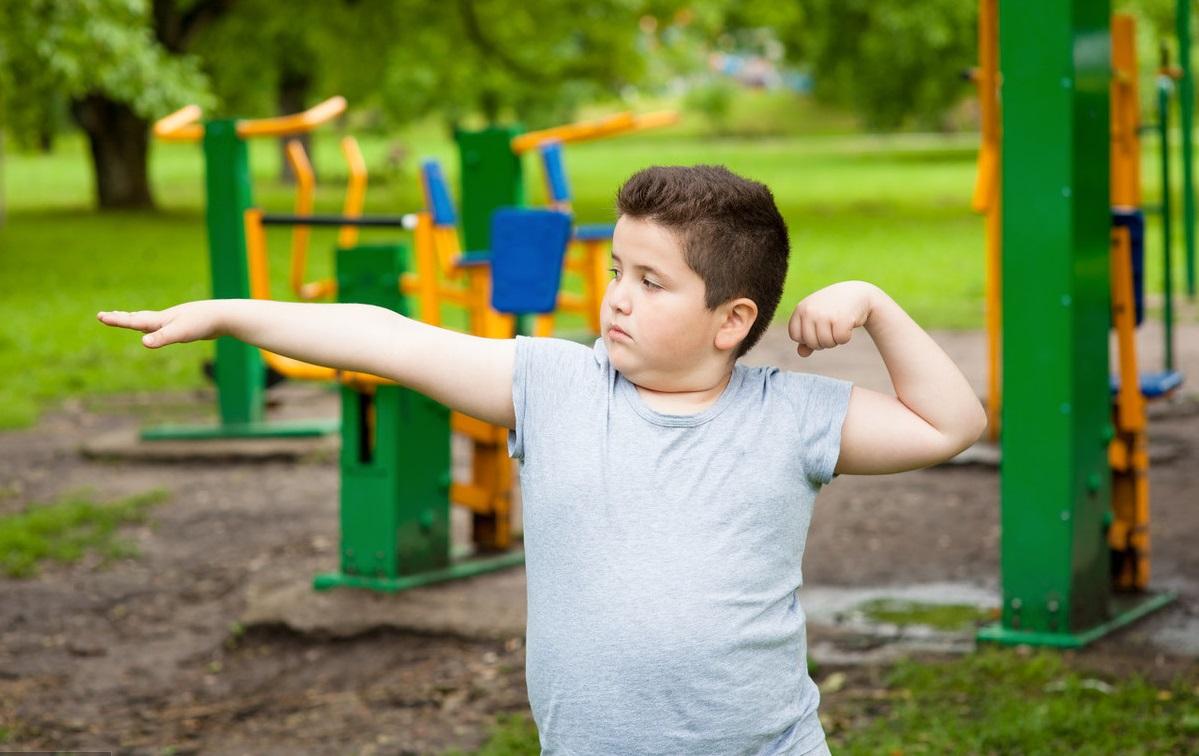If your child is overweight, it can affect their health now and into the future. Overweight children are more likely to grow up into overweight adults, who face all the health risks that carrying excess weight can bring.
If your child is overweight, it's time to take action. There are simple steps you can take to help your child move towards a healthy weight.
Getting started
Many babies and young children look plump, so don’t worry too much about the weight of very young children. Children’s bodies come in many different shapes and sizes. But if your child looks much more overweight than other children their age, it’s a good idea to check with your doctor.
Children are growing, so it's usually not necessary for overweight children to lose weight. Instead, it is usually better that the child maintains their current weight while they continue to grow in height. This will depend on how overweight your child is and how old they are, as well as other factors.
Avoid putting your child on a 'diet' as this is unlikely to work long term. It's better to change their lifestyle and set up healthy habits for the future.
Your doctor can help you work out what is causing your child to be overweight and how to manage it. This could mean looking at what they are eating, how much they eat, how much exercise they get, what food you have in the house, and how the whole family eats.
A healthy, balanced diet and plenty of physical activity will lead to a healthy weight for your child.
A healthy, balanced diet
The key is for your child to eat the correct amount of protein, grains, fruit and vegetables every day and to cut back on foods that contain extra salt, sugar and fat (sometimes called 'discretionary' or 'junk' foods). These include biscuits, cakes, lollies, chips, fast foods and soft drinks.
Keep an eye on fruit juice and smoothies, since these have a high concentration of sugar. Water is the best drink for children.
Make sure you always have a choice of healthy foods available and try not to control what your child eats — encourage them to eat only when they are hungry and to stop when they're full.
Explain to your child that some foods are only 'sometimes' foods. Reward them with a cuddle rather than food, and don't use food as a treat or as a way to cheer themselves up.
If you're unsure what your child should be eating, talk to a dietitian.

Physical activity
Physical activity is also an important part of achieving a healthy weight. The amount of physical activity that is recommended for children depends on age, and children who are overweight may need to do more than the recommended amount in order to lose weight.
Encourage your child to do regular physical activity every day, such as a brisk walk or a sport they enjoy. Build up slowly if they aren’t used to exercise, and make it fun so they are more likely to stick to it.
You can think of creative ways to build physical activity in their day, such as helping you take the dog for a walk, or taking the stairs at the shops rather than the lift.
Aim to reduce the amount of time your child spends on inactive hobbies, such as watching television and playing electronic indoor games.
Current Australian recommendations for 'screen time' are:
Children younger than 2 years of age should not spend any time watching television or using other electronic media (DVDs, computer and other electronic games).
For children 2 to 5 years of age, sitting and watching television and the use of other electronic media should be limited to less than 1 hour per day.
Infants,toddlers and pre-schoolers (all children from birth to 5 years) should not be kept inactive for more than 1 hour at a time, with the exception of sleeping.
It is also important for your child to get enough sleep. Children who don't get enough sleep are more likely to be overweight.

Change as a family
Making changes to your family's lifestyle can make a real difference to your child's weight.
Regular meals, eaten together and without distractions (such as TV) are a great first step towards a healthier diet. Cooking yourself rather than relying on ready-made meals can help you to lower the fat and sugar content in your meals.
If your family eats snacks that are high in fat or sugar, such as chocolate, biscuits, sweets and soft drinks, aim to replace these with healthier alternatives such as fruit.
If you or others in your family also have a weight problem, now is a good time to make changes yourself. It will help your child if you are a role model and they can see you are looking after yourself.
It's also important to help your child develop a positive body image and good self-esteem. Habits in childhood will remain as they grow into adults, so praise them when they try healthier foods or when they swap a sedentary activity for an active one.
Check out some great ideas and support to help your family get on track to a more healthy lifestyle and how to do healthy food swaps.
Your child at school
The school that your child attends should support you in helping your child to achieve a healthy weight.
All schools should provide opportunities for physical activity and healthy food. Some schools will also help to ensure that your child does not bring unhealthy foods to school, by working with parents to set guidelines on packed lunches.
If your child is overweight, you can talk to their teachers about your plans to help your child achieve a healthy weight, and how the school can support this.

Getting support
If you feel uncertain about helping your child to achieve a healthy weight, or the changes you've made don't seem to be helping, then seek support. Your doctor can assess your child's weight and provide further advice on lifestyle changes, or refer you to other health professionals such as a:
paediatrician
dietitian
psychologist
If your child is very overweight or has an underlying medical condition, they may need to be treated by specialists in a hospital.

 中文
中文